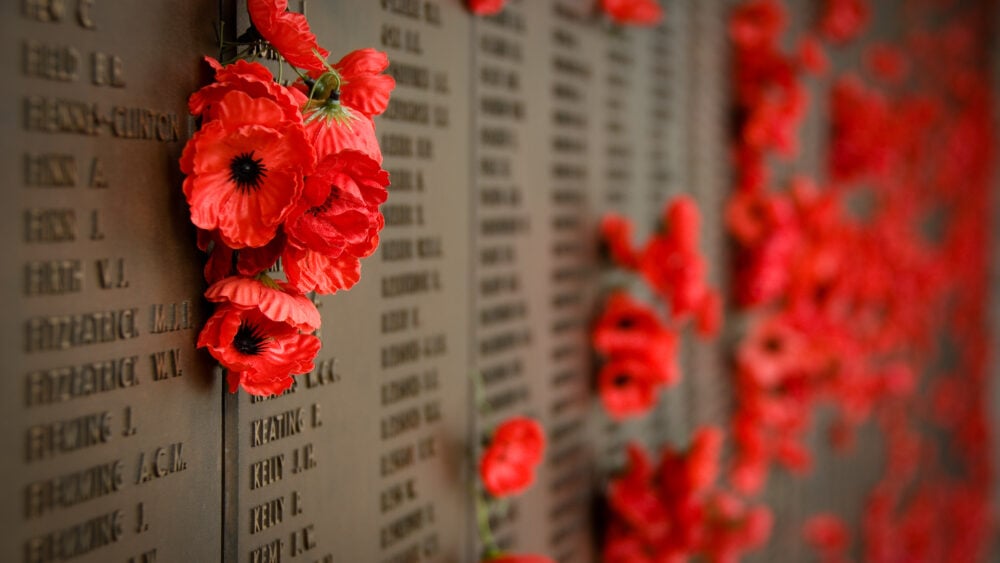Remembrance Day (which was originally called Armistice Day) has a special significance in 2018.

Today marks the 100th anniversary of the Armistice day (suspension of fighting) which ended the First World War (1914–18).
One hundred years ago today the guns of the Western Front fell silent after four years of continuous warfare. With their armies retreating and close to collapse, German leaders signed an Armistice, bringing to an end the First World War. From the summer of 1918, the five divisions of the Australian Corps had been at the forefront of the allied advance to victory. Beginning with their stunning success at the battle of Hamel in July, they helped to turn the tide of the war at Amiens in August, followed by the capture of Mont St Quentin and Pèronne, and the breaching of German defences at the Hindenburg Line in September. By early October the exhausted Australians were withdrawn from battle. They had achieved a fighting reputation out of proportion to their numbers, but victory had come at a heavy cost. They suffered almost 48,000 casualties during 1918, including more than 12,000 dead. In the four years of the war more than 330,000 Australians had served overseas, and more than 60,000 of them had died. The social effects of these losses cast a long shadow over the post-war decades. Each year on this day Australians observe one minute’s silence at 11am, in memory of those who died or suffered in all wars and armed conflicts.
The 11th hour of the 11th day of the 11th month attained a special significance in the post-war years. The moment when hostilities ceased on the Western Front became universally associated with the remembrance of those who had died in the war. This first modern world conflict had brought about the mobilisation of over 70 million people and left between 9 and 13 million dead, perhaps as many as one-third of them with no known grave. The allied nations chose this day and time for the commemoration of their war dead.
On the first anniversary of the armistice in 1919 two minutes' silence was instituted as part of the main commemorative ceremony at the new Cenotaph in London. The silence was proposed by Australian journalist Edward Honey, who was working in Fleet Street. At about the same time, a South African statesman made a similar proposal to the British Cabinet, which endorsed it. King George V personally requested all the people of the British Empire to suspend normal activities for two minutes on the hour of the armistice "which stayed the worldwide carnage of the four preceding years and marked the victory of Right and Freedom". The two minutes' silence was popularly adopted and it became a central feature of commemorations on Armistice Day.
 |
| Red poppies line the Wall of Honour at the Australian War Memorial in Canberra Photo Credit - Gouldy99 |
The red poppy, known as the Flanders poppy, has become a familiar emblem of Remembrance Day due to the poem "In Flanders Fields" written by Canadian physician Lieutenant-Colonel John McCrae. After reading the poem, Moina Michael, a professor at the University of Georgia, wrote the poem, "We Shall Keep the Faith," and swore to wear a red poppy on the anniversary. The custom spread to Europe and the countries of the British Empire and Commonwealth within three years. Madame Anne E. Guerin tirelessly promoted the practice in Europe and the British Empire. In the UK Major George Howson fostered the cause with the support of General Haig. Poppies were worn for the first time at the 1921 anniversary ceremony. At first real poppies were worn. These poppies bloomed across some of the worst battlefields of Flanders in World War I; their brilliant red colour became a symbol for the blood spilled in the war.
Please remember to pause at 11.00am today to remember those who selflessly fought for your freedom and never came home.
LEST WE FORGET

No comments:
Post a Comment